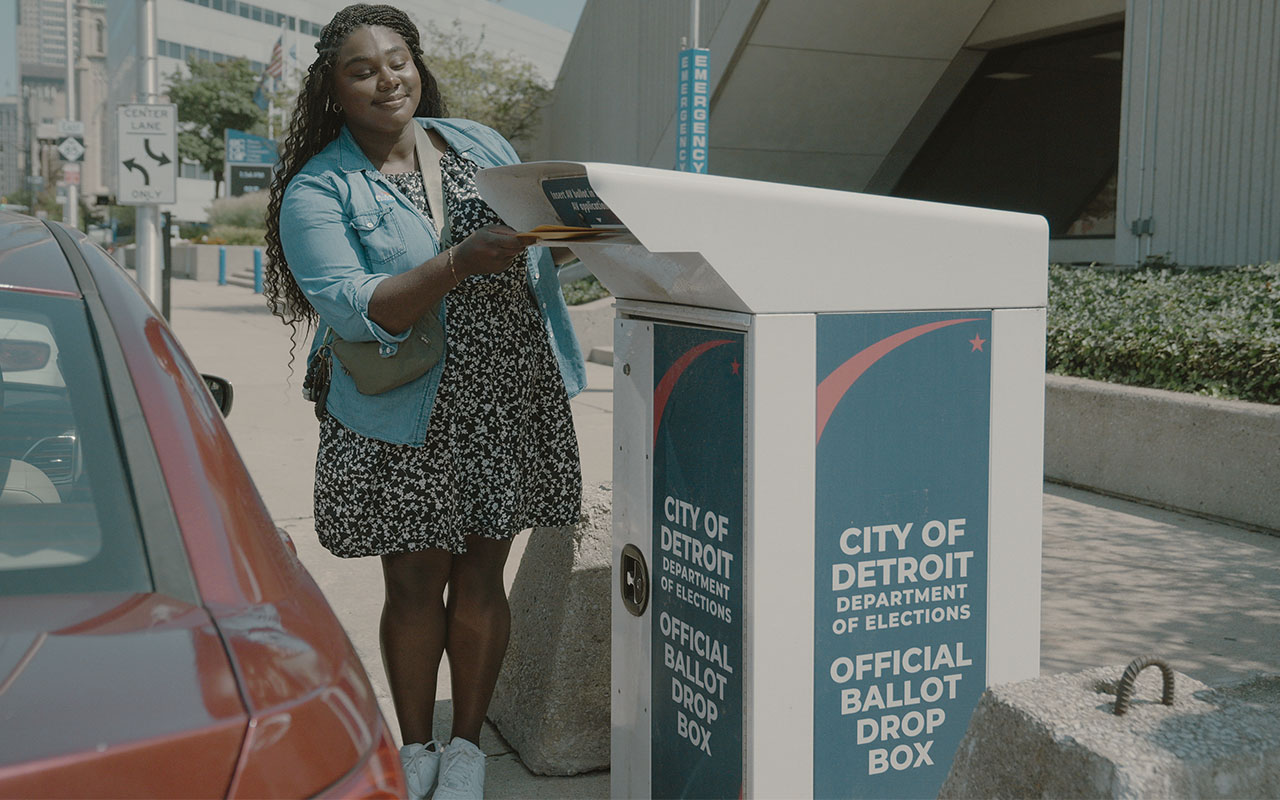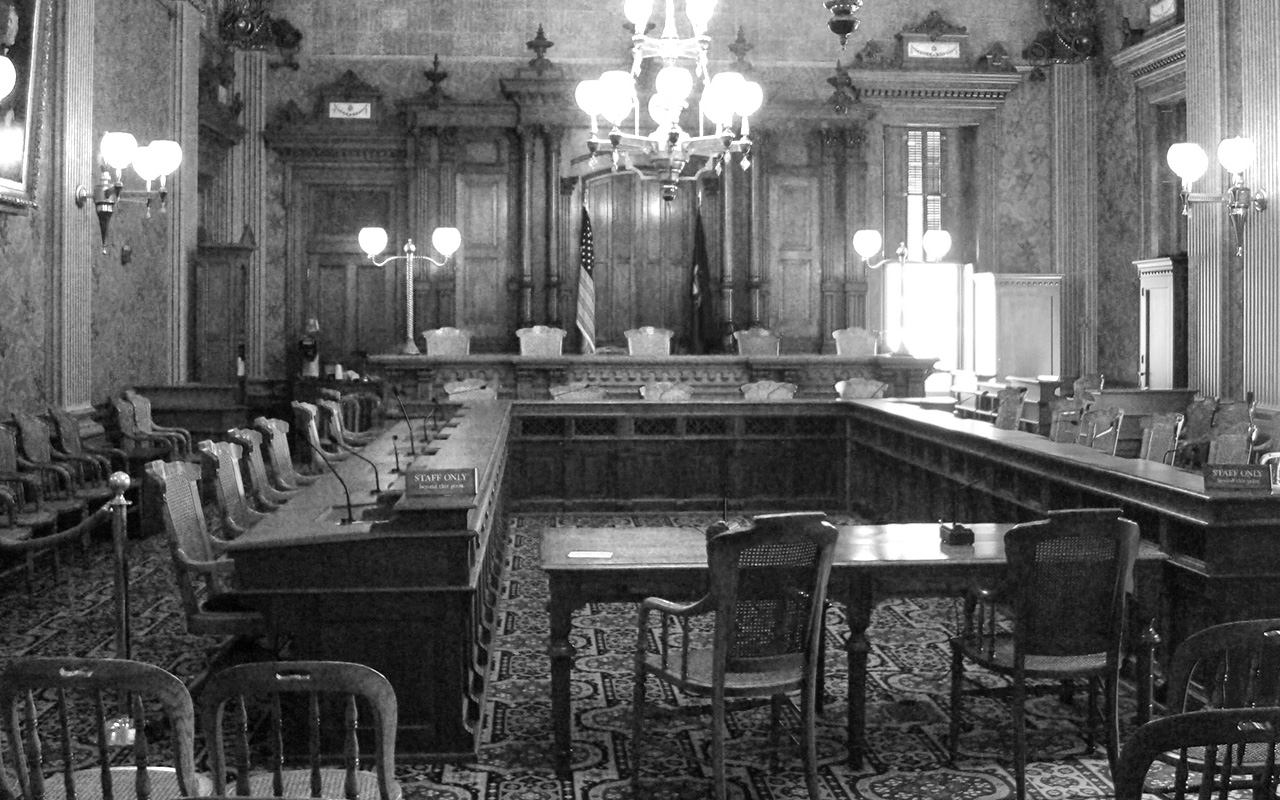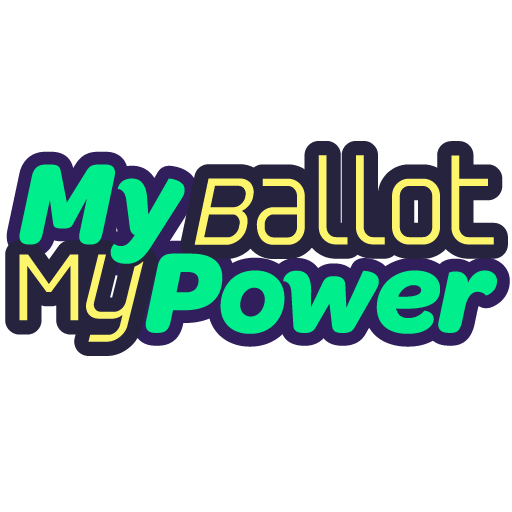
Your Vote Has Power.
You can define your community’s future by voting in this year’s local elections.


Many cities across Michigan have local elections this August and November. We can take back our power by voting in local elections. Learn more about what’s on your ballot, and create your customized ballot today.
Ballots can be confusing! There are lots of jobs and issues that might not make a lot of sense, and that’s ok. Taking the time to understand the jobs on your ballot, and how the people in those jobs make decisions about your life means that YOU can make informed decisions, and choose the future YOU want.
We believe that every vote has power and that by voting you can help define the future of your neighborhood, your city, the state of Michigan, and our country.
Michigan has no off years when it comes to elections. This year, your local government may have a Primary Election (to choose the candidates that will be on the ballot in November) on August 5, and a General Election on November 4. Ballots can differ based on your community, but could include important decisions such as your mayor, city council or city commission, and local clerk (they run elections by the way).
We’re here to guide you through your ballot and provide you resources and support so that you can confidently exercise your voting power. Stay tuned for information about the local elections happening in Michigan in 2025.

Are You Registered to Vote?
Make sure you register to vote, or that you’re registered to vote at the correct address.
Resources

Learn everything you need to know about voting on or before Election Day at MichiganVoting.org.

So you really want to dig in on this stuff? Here’s a Citizen’s Guide to Michigan Government.

Learn more about Michigan’s Courts.
Executive Branch
Federal:
President
State:
Governor
County:
County Executive
City/Township:
Mayor / Township Supervisor
Legislative Branch
Federal:
U.S. House of Representatives (aka Congress) and U.S. Senate
State:
State House of Representative and State Senate
County:
Board of County Commissioners
City/Township:
City Council or City Commission / Board of Trustees
Judicial Branch
Federal:
U.S. Supreme Court
State:
Michigan Supreme Court, Court of Appeals
County:
Prosecutor and Circuit Court Judges
City/Township:
District Court Judges and Magistrates
President and Vice-President of the United States
These folks are the top decision makers in the country.
The President is the commander in chief and their duties can include:
- Overseeing the military.
- Signing bills into law.
- Issuing executive orders.
- Pardon people convicted of federal crimes.
- Appointing justices to the U.S. Supreme Court, the highest court in our country.
Term: 4 years, no more than two terms.
United States Senator
United States Senators write and vote on federal policies, and decide what programs get funded, and how much they are funded, at the federal level each year.
United States Senators will make decisions about:
- SNAP benefits.
- Health care and maternal health.
- Funding for public schools and teachers.
- Affordable childcare.
- Student debt.
Term: 6 years, no limit on how many terms.
Representative in Congress
United States Representatives write and vote on federal policies, and decide what programs get funded, and how much they are funded, at the federal level each year.
United States Representatives will make decisions about:
- SNAP benefits.
- Health care and maternal health.
- Funding for public schools and teachers.
- Affordable childcare.
- Student debt.
Term: 2 years, no limit on how many terms.
Representative in State Legislature
State Representatives write and vote on state policies, and decide what programs get funded, and how much they are funded, at the state level each year.
State Representatives make decisions about things like:
- Paid leave.
- Workforce development.
- Free school lunches.
- Child care stipends.
Term: 2 years, limited to 12 years total service, but that can be in the MI Senate (which has four-year terms), in the MI House, or a combination of the two.
Justice of Supreme Court
Michigan Supreme Court Justices sit on the highest court in Michigan. They make decisions about:
- Paid leave.
- Minimum wage.
- Reproductive rights.
- The ability of police to stop and detain suspects.
Note: Candidates are appointed to the ballot by the two major parties (Republican and Democrat), but do not appear on the ballot with a party affiliation. There are two open seats on the ballot this year.
Term: 8 years, there is no limit on how many terms they serve, but a justice must be under 70 years old when they are elected.
Member of the State Board of Education
Members of the State Board of Education manage K-12 public schools.
The State Board of Education makes decision about things like:
- School-based food programs.
- Student assessments.
- Early childhood learning.
- How federal funds are distributed to schools.
Note: Vote for two candidates in each race.
Term: 8 years.
University Boards
This can include: University of Michigan Regents, Michigan State University Trustees, and Wayne State University Board of Governors.
They make decisions about the supervision of the universities and how their funds are spent. Members are not compensated for their service.
Note: Vote for two candidates in each race.
Term: 8 years.
County Executive
The county executive is the highest elected office at the county level.
They are responsible for managing county activities and enforcing ordinances passed by the county commissioners as well as laws passed by the state.
Term: 4 years (in counties where they are on the ballot).
County Commissioner
County commissioners serve on the Board of County Commissioners and comprise the legislative branch at the county level.
They work to pass county level laws (called ordinances) and pass county level budgets.
Term: 4 years.
Prosecuting Attorney
The prosecuting attorney for a county represents the people of the county, and prosecutes felony and misdemeanor cases.
Term: 4 years.
Sheriff
The county sheriff is responsible for enforcing laws and maintaining a jail within a county.
Term: 4 years.
Clerk and Register of Deeds
The clerk and register of deeds is responsible for legal documents that are related to property (for example: liens, mortgages, wills, and land contracts).
Term: 4 years.
Treasurer
The county treasurer is responsible for public funds (at the county level). They serve as the county’s banker and investor.
Term: 4 years.
Drain/Water Resource/Public Works Commissioner
Drain Commissioner / Water Resource Commissioner (Oakland County) / Public Works Commissioner (Macomb County)
Drain commissioners are responsible for maintaining drainage systems and administering laws that relate to stormwater management, flood protection, and soil erosion.
Term: 4 years.
Supervisor
The township supervisor is the highest elected office at the township level.
They serve as the township’s legal agent and are responsible for developing the township’s budget.
Term: 4 years.
Clerk
The township clerk administers elections, maintains the voter registration file, prepares warrants, maintains township records, and publishes meeting notices.
Term: 4 years.
Treasurer
The township treasurer is responsible for public funds, collects taxes, and issues township checks.
Term: 4 years.
Trustee
The township trustees are township-level lawmakers. They develop and vote on local policies.
Term: 4 years.
Mayor
The mayor is the highest elected office at the city level. They preside over the city council/city commission, and may be a voting member of the city council/commission.
A mayor’s duties may vary from city to city. Generally, they work to ensure that laws and ordinance are enforced, they develop and administer the city’s budget, appoint board and committee members, and manage city services. They are elected to a two- or four-year term depending on the city.
Term: 2 or 4 year term depending on the city.
City Councilmember/ City Commissioner
City councilmembers/commissioners are city-level lawmakers.
They develop and vote on city-level policies, approve budgets, appoint and direct officials (like the city manager).
Term: 2 or 4 year term depending on the city.
City Clerk
The city clerk is responsible for city-level clerical and administrative services, maintaining public records, facilitating meetings, and administering elections.
Term: 4 years.
Judge of Court of Appeals
Appellate court judges review cases from the trial courts and determine if an error occurred in a previous trial.
Judges on the appellate court serve a district that covers a geographic area.
Term: 6 years.
Judge of Circuit Court
Circuit court judges serve in a trial court and hear cases with damages over $25,000 as well as all felony criminal cases.
Term: 6 years.
Judge of Probate Court
Probate court judges handle wills, estates, and trusts.
They appoint guardians and conservators for minors, and order treatments for people with mental illnesses as well as for people with developmental disabilities.
Term: 6 years.
Judge of District Court
District court judges serve in a trial court and hear cases with damages under $25,000. These judges decide on traffic violations, tenant and landlord disputes, and all misdemeanor criminal cases.
Term: 6 years.
Local School District: Board Member
Local school board members are responsible for the operations of the school district.
They make decisions about curriculum, staffing, student safety and welfare, property, and establish policies.
Term: 4 years.
Proposal Section
The proposal section on your ballot contains statewide and local proposals.
In 2024, there are no statewide proposals; however, there may be local proposals including mileages, decisions related to your city charter, or other local decisions.
Be sure to check them out ahead of time.
